Today I was trying to access my Dell 730 (r730-01) via the remote console. I failed. Twice.
First and expected failure
First, this was usual and expected. It’s been a problem both at home and at work. It is the inability to access the console via https using the hostname
This is what I see:
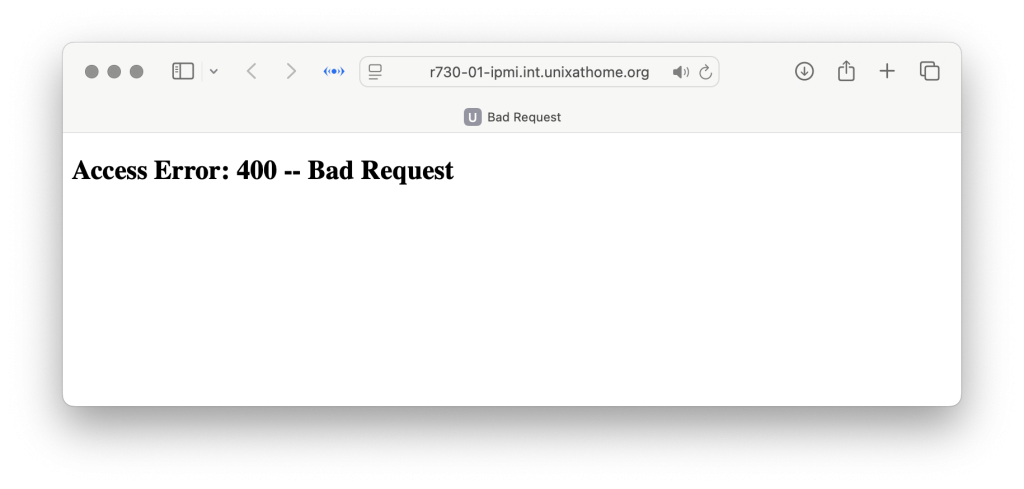
I can get in via IP address though.
Second and new-to-me failure
Next, after logging in via IP address and clicking on the console, I got this (after waiting a bit, that “The session has timed out waiting for verification of the certificate. All the connections will be closed.” window popped up.
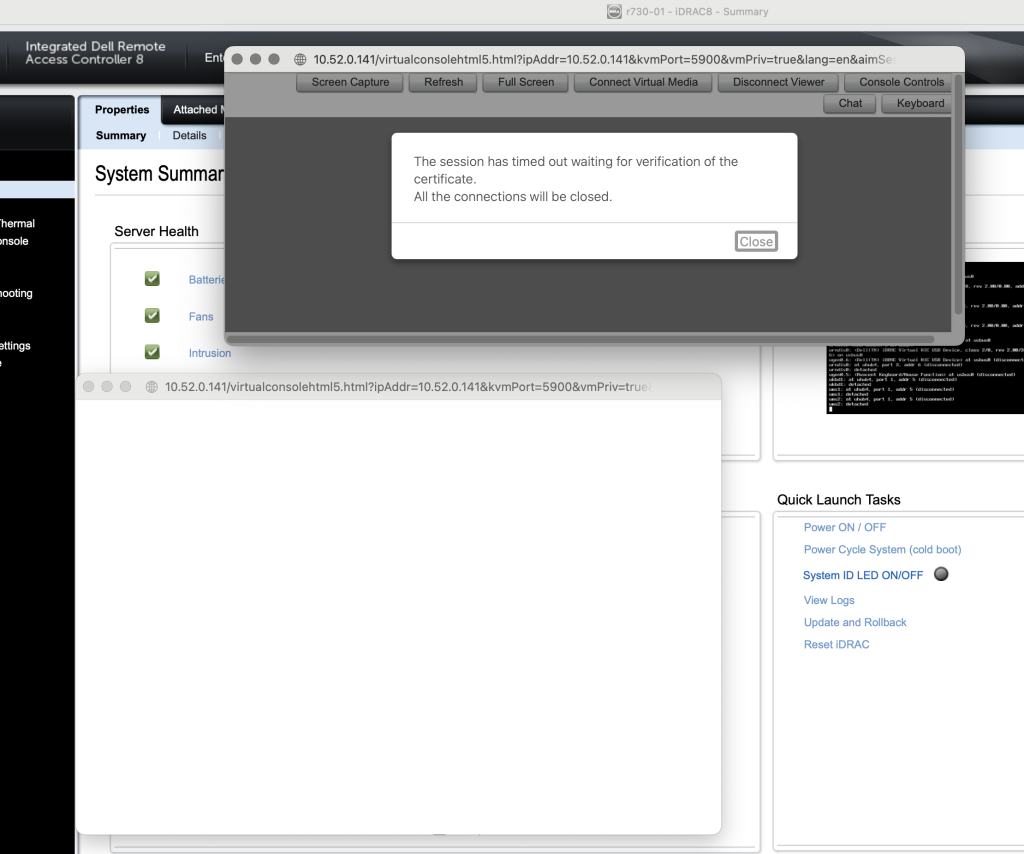
All the connections will be closed.
Trying wget
Let’s try wget here. I right clicked on the website and grabbed the URL, and tried it via wget:
[11:44 pro05 dvl ~] % wget -S "https://10.52.0.141/virtualconsolehtml5.html?ipAddr=10.52.0.141&kvmPort=5900&vmPriv=true&lang=en&aimSession=2&ST2=a90ad52d9c6a5de5bef4d8556ba05143&TokenName=ST1&TokenKey=23fb1361c9b058f6a72aecbb48c53ea1"
--2025-09-28 11:44:30-- https://10.52.0.141/virtualconsolehtml5.html?ipAddr=10.52.0.141&kvmPort=5900&vmPriv=true&lang=en&aimSession=2&ST2=a90ad52d9c6a5de5bef4d8556ba05143&TokenName=ST1&TokenKey=23fb1361c9b058f6a72aecbb48c53ea1
Connecting to 10.52.0.141:443... connected.
ERROR: cannot verify 10.52.0.141's certificate, issued by ‘emailAddress=support@dell.com,CN=idrac-9ZJ1282,OU=Remote Access Group,O=Dell Inc.,L=Round Rock,ST=Texas,C=US’:
Self-signed certificate encountered.
ERROR: certificate common name ‘idrac-9ZJ1282’ doesn't match requested host name ‘10.52.0.141’.
To connect to 10.52.0.141 insecurely, use `--no-check-certificate'.
Is this the problem the web browser is hitting?
Getting connected
Instead of all this kerfuffling about I had done so far this morning, I decided to use VNC. Over an unencrypted connection.
EDIT: After posting this, I disabled VNC access.
I could have avoided all this work by walking to the basement and working from the physical console. However, that is not what I wanted to do. I want my VNC.
Here we go, connected:
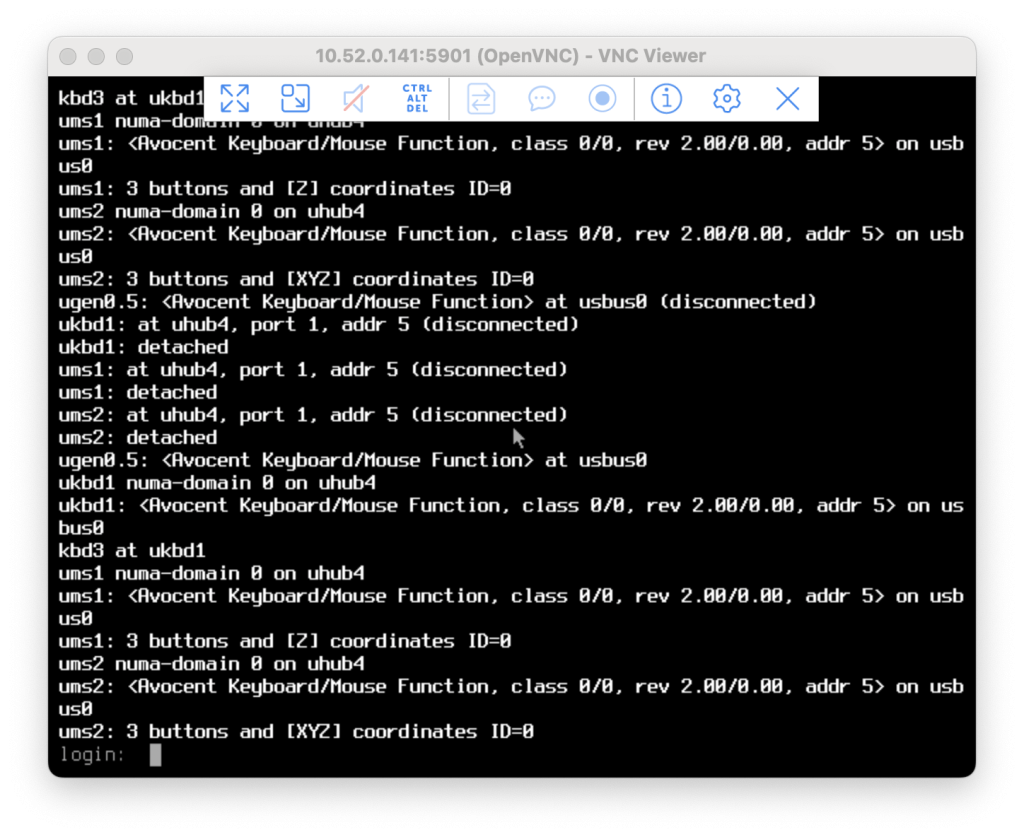
All this, because I want to review the BIOS settings for bifurcation for possible consolidation of existing NVMe devices. I have four NVMe cards, two unused. I’m thinking: buy two new cards, two NVMVe per card, and split my two zpools across two cards. I’d have two zpools, mirrored, 1TB and 4TB each. Meaning each card would have one each of 1TB and 4TB devices.
System BIOS – Integrated Devices
Once I get into the BIOS, I see Slot Bifurcation at the bottom of the page.
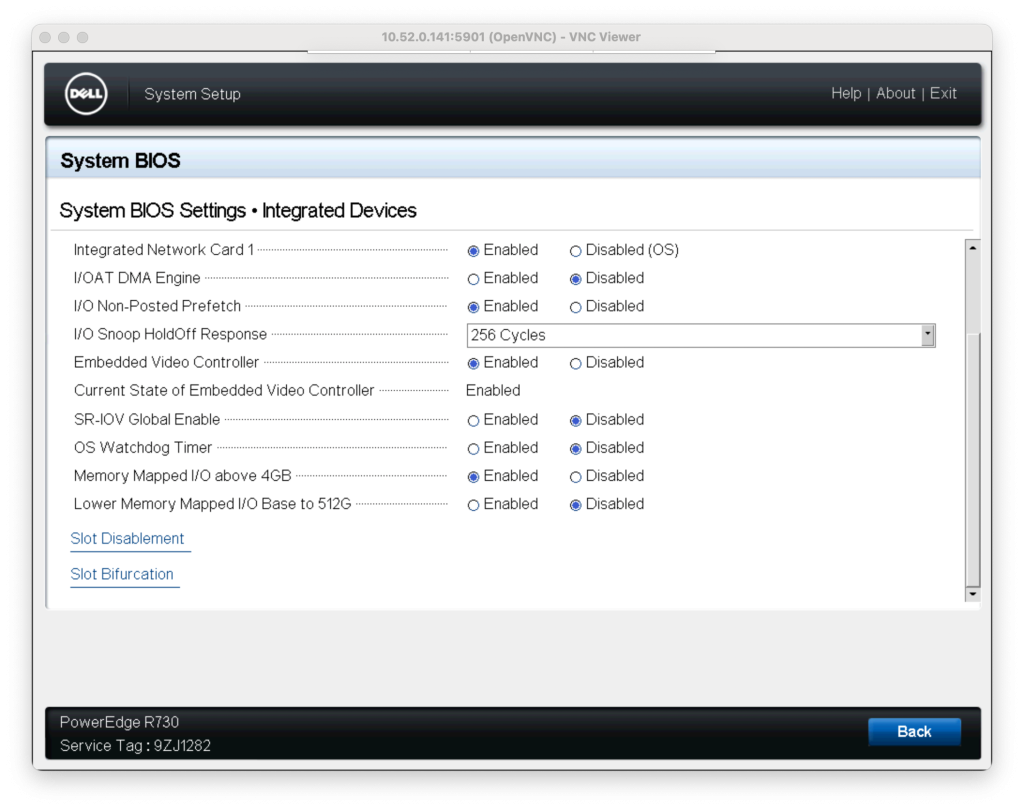
Clicking on that Slot Bifurcation, we go to the next screen shot.
System BIOS – Integrated Devices – Slot Bifurcation
Look what we have here for slot 4:
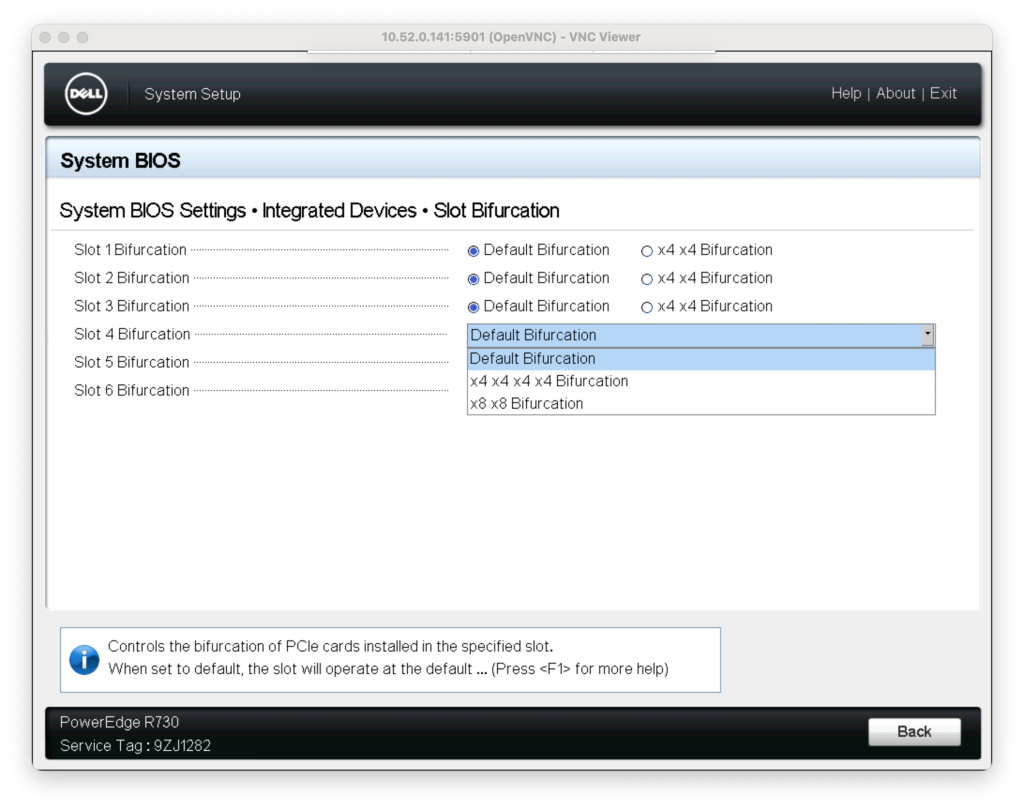
And for slot 6:
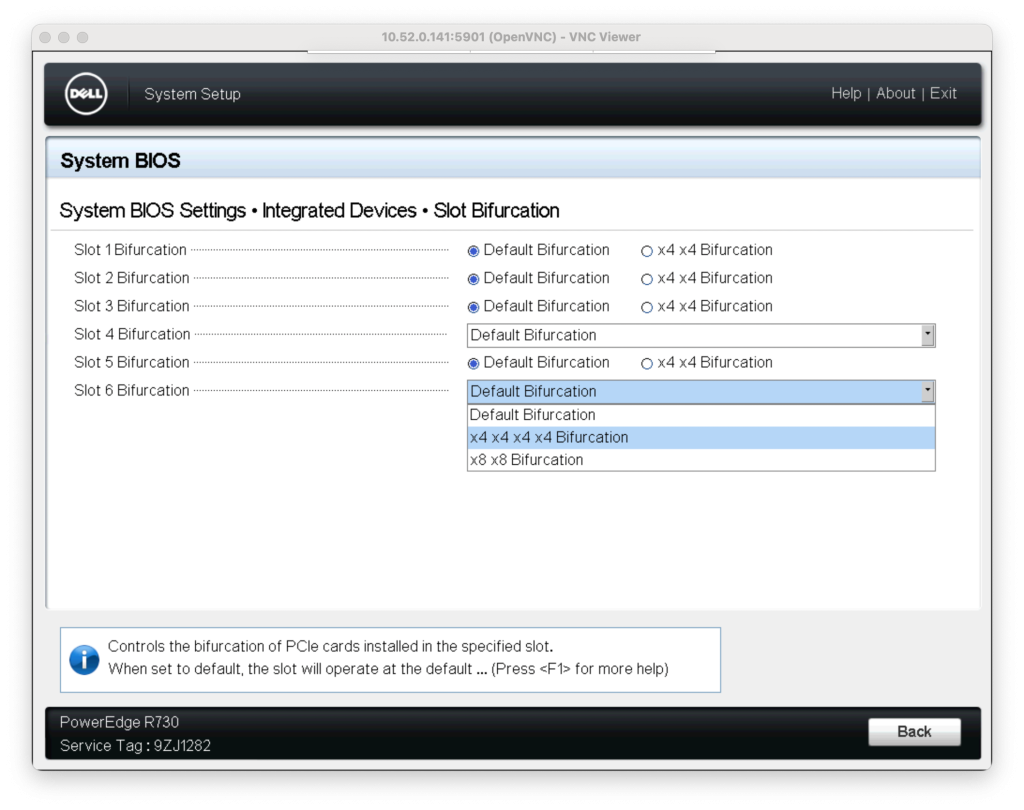
To me, that 4x4x4x4 option will allow me to carry out the plan.
The gear and the plan
This is the NVMe gear I can deploy:
- 2x Samsung 990 EVO Plus SSD 4TB, PCIe Gen 4×4 | Gen 5×2 M.2
This is what I plan to buy:
- 2x 10Gtek Dual M.2 NVMe SSD Adapter Card – PCIe 3.0 x8 Slot (M-Key), Supports 2X NVMe Drives via Bifurcation – model PCIX8M2-2 for US$20 each
This is how I plan to install the above mentioned stuff:
- slot 4 – PCIX8M2-2 with 1TB and 4TB
- slot 6 – PCIX8M2-2 with 1TB and 4TB
- Modify the BIOS so both slot 4 and 6 are using 4x4x4x4
Then create a 1TB mirrored zpool and a 4TB mirrored zpool.
Why two cards? Diversity. I could buy one card and put all four on there. That’s all your cards in one slot. I’d rather spread them over two cards and two slots. If one card goes bad, you still have your mirrors. Not that these cards go bad…











